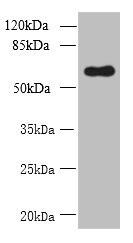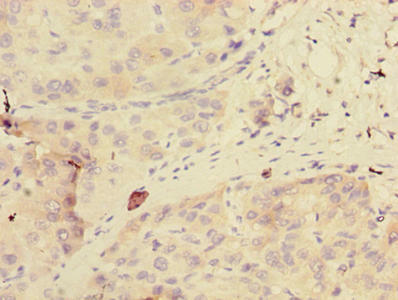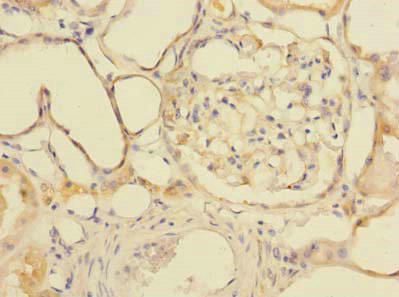| UniProt Protein Function: | GDPD2: Has glycerophosphoinositol inositolphosphodiesterase activity and specifically hydrolyzes glycerophosphoinositol, with no activity for other substrates such as glycerophosphoinositol 4- phosphate, glycerophosphocholine, glycerophosphoethanolamine, and glycerophosphoserine. Accelerates the program of osteoblast differentiation and growth. May play a role in remodeling of the actin cytoskeleton. Belongs to the glycerophosphoryl diester phosphodiesterase family. 3 isoforms of the human protein are produced by alternative splicing.Protein type: Membrane protein, multi-pass; Membrane protein, integral; Phosphodiesterase; EC 3.1.4.43Chromosomal Location of Human Ortholog: Xq13.1 |
| UniProt Protein Details: | |
| NCBI Summary: | This gene encodes a member of the glycerophosphodiester phosphodiesterase enzyme family. The encoded protein hydrolyzes glycerophosphoinositol to produce inositol 1-phosphate and glycerol. This protein may have a role in osteoblast differentiation and growth. Alternate splicing results in multiple transcript variants. [provided by RefSeq, Jan 2010] |
| UniProt Code: | Q9HCC8 |
| NCBI GenInfo Identifier: | 74752794 |
| NCBI Gene ID: | 54857 |
| NCBI Accession: | Q9HCC8.1 |
| UniProt Secondary Accession: | Q9HCC8,Q9NXJ6, B4DRH4, B4DVC9 |
| UniProt Related Accession: | Q9HCC8 |
| Molecular Weight: | 66,991 Da |
| NCBI Full Name: | Glycerophosphoinositol inositolphosphodiesterase GDPD2 |
| NCBI Synonym Full Names: | glycerophosphodiester phosphodiesterase domain containing 2 |
| NCBI Official Symbol: | GDPD2 |
| NCBI Official Synonym Symbols: | GDE3; OBDPF |
| NCBI Protein Information: | glycerophosphoinositol inositolphosphodiesterase GDPD2 |
| UniProt Protein Name: | Glycerophosphoinositol inositolphosphodiesterase GDPD2 |
| UniProt Synonym Protein Names: | Glycerophosphodiester phosphodiesterase 3; Glycerophosphodiester phosphodiesterase domain-containing protein 2; Osteoblast differentiation promoting factor |
| Protein Family: | Glycerophosphodiester phosphodiesterase |
| UniProt Gene Name: | GDPD2 |
| UniProt Entry Name: | GDPD2_HUMAN |









